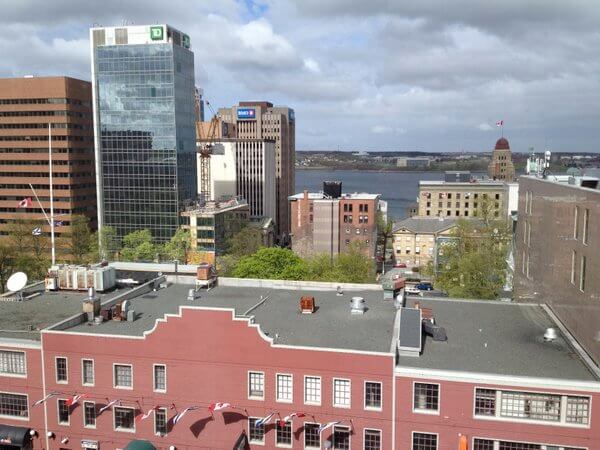“The Tree House is not for everyone.” Not exactly what one might expect the owner of a hotel to say — but this is actually the first sentence of the Bangkok Tree House website. As much as the hotel wishes to attract guests that share the owners’ dedication to protecting the environment, neither does it want to disappoint guests who might be unprepared for the rustic surroundings.
Located on the Phra Pradaeng Peninsula (now transformed into an island) in the Chao Prya River — Bangkok’s primary maritime thoroughfare, along whose banks lie many of the city’s prime attractions and best hotels — the Tree House is going boldly where few urban hotels have ventured before: into the realm of extreme green. The experiment is still in its early months; but the innovations are striking, and first impressions are that it can be a pleasant — and even comfortable — experience to immerse oneself in Bangkok’s “green lung.”
Still, it is important to be prepared; and that is why the hotel’s website is an excellent primer: the ABC listing on its home page tells prospective guests exactly what — and what not — to expect. Basically, it’s like staying at an eco-lodge in the countryside — even though you are just a quick ferry ride from the BTS Skytrain’s Bangna station. In fact, there is no automobile access to — or on — the island at all; water taxi service is available (recommended for airport transfers) in addition to the public ferry. (There is virtually free parking next to the ferry terminal, although driving a car in Bangkok would have to rank among the more foolish things to do in the city.)
Among the highlights of the hotel’s caveat emptor index are the absence of fumigation (although the river breeze is said to mitigate the insect problem, and no-one wants to keep the birds, fireflies and butterflies away), and the presence of beneficial plants in the chlorine-free swimming pool. Linens and towels are dried by the sun on clotheslines, and no water in plastic bottles is sold or served; instead, complimentary house-distilled water is always available in glass flasks.
The Tree House is especially proud of its “Refuse, Reuse, Reduce and Recycle” policy. All outdoor and restaurant lights are powered by renewable energy sources: wind and solar. Rain water is collected and used to irrigate the hotel’s plants and flowers, and the restaurants’s herbs and vegetables; rain water is even treated to wash the dishes. As much as possible of the hotel’s basic construction materials were “upcycled”: discarded juice cartons were pressed into service as insulation, the pier is made from used plastic drums, and reclaimed wood was used to build the walkways.
The Tree House comprises 11 rooms — called “nests” — mostly doubles, although some will sleep three or four. The “penthouse” is called a View with a Room: a soaring platform whose centerpiece is the large bed under the stars (there is a “contingency nest” in case of rain). Most nests come with outdoor showers; some have the toilets and bathrooms on separate levels from the bedrooms — and a few might find the staircases a bit steep. Although to conserve electricity there is no air conditioning in the hotel’s public areas (the river breeze helps here as well), the bedrooms are equipped with compact, energy-efficient air conditioners to promote sleep. Instead of televisions, all nests include Wi-Fi-enabled desktop computers that come pre-loaded with selected movies and documentaries (on green/social themes), plus cartoons for the kids.
As mentioned, the restaurant, Reflect, also adheres to — and benefits from — the Tree House’s overall devotion to environmentally friendly, as well as healthful, principles. The food in the “pescetarian” restaurant (seafood is served, but not meat) is always in-season and free of any artificial additives or preservatives. Menus invariably feature three choices — seafood, Thai and vegan — and rely heavily on organic produce grown on the hotel grounds. Other food supplies, as well as herbal soaps and shampoos, are sourced locally. (Even hiring preference is given to employees who can walk or bike to work, thus reducing the impact of transportation on the environment.)
Although the restaurant is not strictly vegan, the hotel as a whole strives to be vegan-friendly, eschewing the use of leather in its furnishings. The Tree House also composts all kitchen and organic waste, while the restaurant boasts “carbon-free cooking,” employing solar cookers for meal preparation during daylight hours.
During its “soft opening” season, the Tree House is offering reduced introductory rates. Even afterwards, it plans to keep a package of great perks, including complimentary full-service a la carte breakfast; free Wi-Fi; a free cellphone with local Thai number; and a rather unique treat: free ice-cream, around the clock. Room rates also include free use of bicycles to explore the environs — which happen to include the Si Nakhon Khuean Khan Botanical Park (ask the restaurant to prepare a gourmet picnic basket, complete with a blanket and suggestions for the best spots to eat) and the weekend Bang Nam Peung Floating Market.
Published Internet rates: THB 3,6700 to THB 8,590 (approx. $118-$285). Prices, as well as “stay 3 nights pay for two,” valid until 31 October 2012. All taxes are included in quoted prices.
Text by Buzzy Gordon. Photos courtesy of Bangkok Tree House.
- Buy Travel Insurance
- Get a Car Rental
- Search for Great Tours HERE





